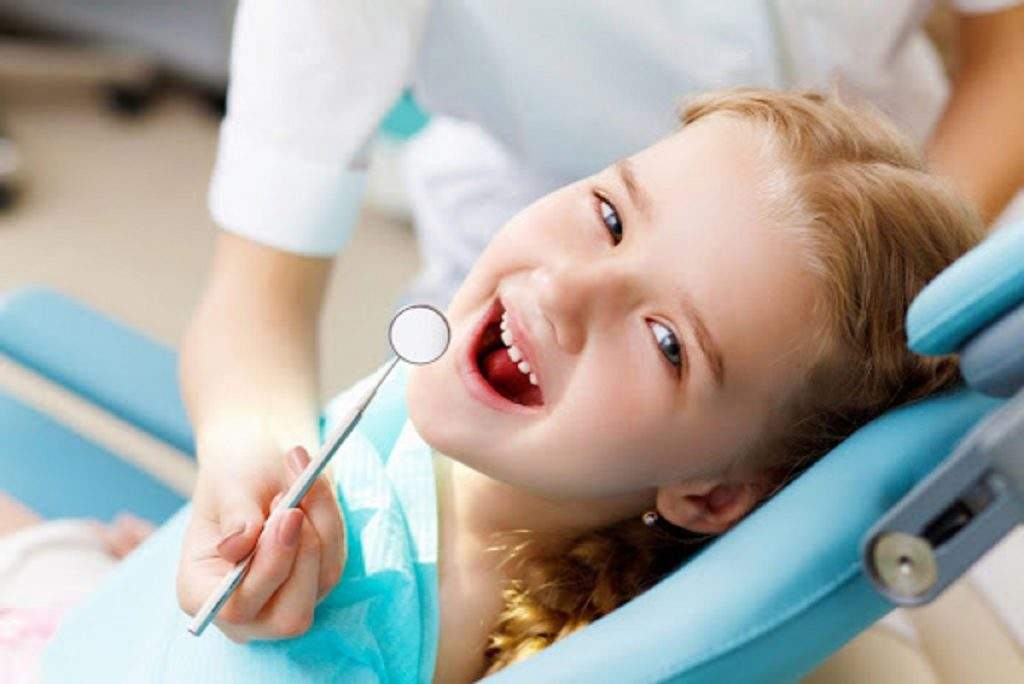
Want To Teach Children Good Dental Habits? Follow These Tips!

Children are susceptible to dental decay when they are not taught how to maintain good oral health. Since they are more inclined to having sugary items, eating chocolates, and other items that cause dental cavities and oral diseases, they must be taught to practice good dental habits. To top it all, misaligned teeth are dens for dental ailments. Unless they take care of their teeth, they have to take resort to cavity fillings, RCT or get clear aligners in case of teeth crowding.
Making children understand the importance of good oral care from an early age is important. The Sooner they learn how to brush properly, the fewer chances of getting gum problems, cavities in their teeth.
Along with daily brushing and flossing, it’s important for children to visit a pediatric dentist for regular checkups, as these can help avoid dental issues before they crop up. Teaching your kids the following oral health care habits will set them on the path for a lifetime of excellent oral hygiene.
Regular dental check-up along with a daily brushing routine is also important to avoid issues at a later age. It is better to take your child to a peadiatric dentist for a regular checkup. They will help in teaching dental habits to your children.
- Brushing twice daily: Brushing teeth only in the morning is not good enough. Children have to inculcate the habit of brushing their teeth before going to bed at night as well. In this way, they will have germ-free teeth and most of the food particles will be washed clean. However, if your child is too young to brush on his/her own, then adult supervision is mandatory. In no way should they swallow the toothpaste.
- Using certified toothpaste: Brushing is a must and using good toothpaste is a mandate. So, teach your child the habit of choosing a toothpaste that is certified by a recognised dental association or the one that contains fluoride. Children may be too young to understand this point, but this habit will bear the desired results as they grow up.
- Flossing is important: Children may become lazy when they have to floss but as a parent or a guardian you need to teach them to get rid of those tiny morsels of food that stick between two teeth. Make sure that you teach them to use dental floss and not just use any thread that can cut their delicate gums and cause bleeding and trauma that can have adverse effects on them.
- Using mouthwash for an odour-free mouth: Rinsing the mouth with a well-branded mouthwash will keep away germs and gum diseases. Besides this, the fresh feeling that a mouthwash offers will make the children feel much better and help them keep bad breath at bay. This practice is best suited for children who are not too young since the little ones run the risk of swallowing down the mouthwash.
- Rinsing the mouth well after every meal: This is indeed an effective and simple habit that you can teach your children. Imbibe in them the regular habit of rinsing their mouth with clean water once they have had each of their meals. It cleans the mouth instantly by washing away any visible food particles and prevents a strong stench from growing stronger.
- Drinking sufficient water: Not having enough water leads to improper functioning of the body which in return causes indigestion and acidity. Both of these give rise to extremely bad oral odour. Making your child have enough water will prevent the occurrence of these problems and obviously, bad breath.
Children also have to be vividly told about the dental havocs that are caused by the consumption of sugary and starchy foods. This instils a little fear in them and they in all probability will avoid having them in excessive amounts. You can choose alternatives for sugar candies. Moreover, your child must be taken to a dental clinic once every six months for a thorough dental check-up and to be given an impartial statement of their dental health. This will help you get aware of whether your little one needs a dental filling, or any other treatment to maintain better oral health or not.